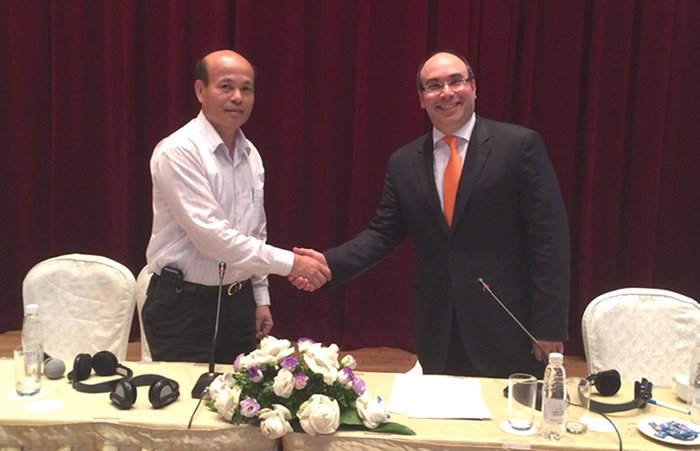Recommendations on rules and procedures for a BioTrade-friendly implementation of the Nagoya Protocol in Viet Nam made at consultations organized by Viet Nam Government and UNCTAD.
UNCTAD, the Biodiversity Conservation Agency (BCA) of Viet Nam, part of the Ministry of Environment, and the BioTrade Implementation Group (BIG), a conservation NGO, gathered over 50 international experts, Government regulators, businesses, research centres, academia, ASEAN ABS Centre, NGOs and donors for a training and consultations on the implications of the entry into force of the Nagoya Protocol of the Convention on Biological Diversity on Access and Benefit Sharing (ABS). The consultations also examined what changes need to be made in the existing national regime to ensure compliance in a manner that enhances benefits for both resource users and owners.
Compliance with the Nagoya Protocol will also contribute to implementing the 2030 Agenda for Sustainable Development. With the objective of ensuring a legal access and a fair and equitable sharing of benefits arising from the use of genetic resources and associated traditional knowledge from biodiversity, the Nagoya Protocol is a key instrument for the achievement of Target 15.6 of the SDGs. This target emphasizes a promotion of ABS that is fair, equitable and appropriate.
As one of the ratifying countries of the Nagoya Protocol, the Government of Viet Nam is working to strengthen the national policies on ABS in compliance with the Nagoya Protocol, mentioned Dr. Cuong, Director of the Biodiversity Conservation Agency (BCA) of Viet Nam. In this direction, in addition to the national consultations, Viet Nam is collaborating with UNCTAD to develop a national study on the interface between BioTrade and ABS. Dr. Cuong emphasized the Government's satisfaction with UNCTAD's active cooperation in mainstreaming BioTrade issues and in helping Viet Nam obtain a better understanding on the existing ABS regime and identifying suggestions for new ABS regulations consistent with the Nagoya Protocol in Viet Nam. BCA requested UNCTAD to continue to provide legal and technical advise during the process of developing new ABS regulations, and to support awareness raising and implementation once new regulations come into effect.
Mr. Bonapas Onguglo, Head a.i of the Trade, Environment, Climate Change and Sustainable Development Branch of UNCTAD, highlighted the importance of BioTrade for Viet Nam and the necessity of linking BioTrade to the Nagoya Protocol. Sales revenues from this sector amount to over US$ 100 million, with a growth rate of over 30 percent annually. This access has also resulted in some benefit sharing gains for resource owners.
Mr. Miroslav Delaporte, SECO (State Secretariat for Economic Affairs of Switzerland) country director for Viet Nam, affirmed the success of the BioTrade in the country, and SECO's support to UNCTAD's Biotrade Inititive. As a result, SECO is committed to expanding its cooperation, not only in Viet Nam, but also in neighbouring countries like Laos PDR and Myanmar.
The level of awareness of BioTrade in the country is low but the workshop helped mainstream this concept among Government agencies and researchers, who could then better value the effort businesses in this sector are making towards sustainable sourcing and use of biodiversity. In this regard, the workshop examined how BioTrade value chains and ABS work with real cases and examples. International experts presented with examples and cases from countries in Africa and Latin America areas of intersection between BioTrade and ABS. Participants then discussed them in view of the current situation in Viet Nam and came to an understanding on some of the issues that the new draft regulation needs to take into account.
The workshop was novel in putting together the private and the public sectors in Viet Nam to discuss possible new ABS regulations that are not only compliant with the Nagoya Protocol, but that also facilitate follow-up implementation by companies aiming to sustainably use biodiversity. Helvetas Vietnam and BIG, focal points for the BioTrade private sector in the country, expressed their interest in facilitating the compliance by companies with any new ABS measures.
The training and consultations on the draft national ABS implementing regulation were highly appreciated by the Government agencies and businesses alike.
UNCTAD and the Biodiversity Conservation Agency of Viet Nam agree on the importance of BioTrade for access and benefit sharing from genetic resources from biodiversity



